Many of the Craft fail to properly differentiate between the objectives of Freemasonry and those of the popular modern service clubs.
Each has a definite sphere of service; each is important – yet they follow separate paths.
The timely article on this page clarifies the primary differences and points out the basic reasons why Freemasonry can never function as a service club.
Article reproduced with the kind permission of the Grand Lodge of British Columbia and Yukon
A Masonic lodge is not a service club
An address delivered to the 10th Annual Conference of Western Canadian Grand Lodges (1950) in response to the question, “Should Our Western Grand Lodges Sponsor a Specific Program?”
Publisher’s Note: – The article is an excerpt from an address delivered to the tenth Annual Conference of Western Canadian Grand Lodges, 1950. Some 70 years ago. This discusses the direction of Grand Lodges directing their members into charitable and laudable public projects – possibly with a motive to gain a positive public opinion of the fraternity.
The article resonates though the lens of the first quarter of the twenty-first century. Grand Lodges, who are the centralised governing bodies, continue to direct members into community projects to gain a positive public opinion of the fraternity.

Image Credit: https://www.ugle.org.uk/discover-freemasonry
In the history of our time, the first half of the twentieth century will be noted for many things. World-shaking events have followed each other in such rapid succession as to over-shadow many of the trends and movements in the social order which accompanied them.
Notable amongst the latter, on the North American continent, has been the phenomenal growth of organizations [dedicated] to humanity.
The multiplicity of service clubs and similar associations which have been organized during the past twenty-five years in particular is somewhat remarkable.
To the keen observer it would seem as if men (and women too), throughout the country during the years following World War I, had become intensely conscious of the vital import in the words of the Great Master who said:
Not everyone that sayeth unto me, ‘Lord,
Lord,’ shall enter into the Kingdom,
but he that doeth the will of My Father.
The desire to be up and doing appeared to be the motivating force.
Many of these organizations, whose names are household words, and whose activities are widely publicized, have great achievements to their credit.
Vast sums of money have been collected and dedicated to human betterment. Untold hours of labour have been contributed by devoted members towards the advancement of the various projects which they had undertaken to support.
Blessings of many kinds have come to countless thousands as the result of their activities and truly noble endeavours to translate principles into practices, ideas into realities, and faith into works, through the effort of doing.
The worthwhile accomplishments of these organizations, and the favourable publicity associated with their activities, have been disturbing factors in the life of Freemasonry during that same period.
In discussions about their Craft and comparisons with these other institutions many of our members, from time to time, advocate a programme of similar activities, and evince a desire to copy their methods and introduce them into Freemasonry.
In some instances even Masters and officers of lodges have endeavoured to implement their ideas along these lines.
Sincere and enthusiastic brethren sometimes give expression to their feeling of disappointment at what they term as the failure of the Craft to put its principles into practice or to measure up to its ideals, when it apparently ignores the problems of the outer world which are crying for a solution such as Freemasonry could provide.
They feel a sense of frustration like unto those in the parable, who stood idly in the market-place because no man had hired them, though there was much work to be done in the Master’s vineyard.
They are waiting for the Craft to send forth a clarion call to active service in some great cause, some worthwhile project that will capture the imagination and harness the enthusiasm of the members for spectacular action.
It is claimed that Freemasonry is suffering by comparison with these other organizations operating in competition, that it is losing to them many of its keen, young members who are attracted by the more colourful activities associated with their operations, and that its influence for good must decline if it continues to remain within the cloistered walls of its lodges while outside the world bleeds.
As an indication of this trend of thought among Freemasons we are reminded that a few years ago, when the Grand Lodge of British Columbia was celebrating its 75th anniversary, the idea was expressed that it would be a fitting occasion for the Grand Lodge to send forth a call to the Craft throughout the province to undertake some great project in public welfare, which might glorify the closing quarter of its century, and be worthy of its great inheritance of past years.
A similar suggestion, but in the form of a definite recommendation, was placed before the Grand Lodge of Alberta about two years ago, which received wide publicity in the press at that time, concerning the problem of youth and the establishment of a Masonic farm training centre in the province.
These trends of prevailing thought amongst Freemasons present a very definite challenge to all those who are placed in positions of responsibility for the guidance of the Craft in these trying times, and the question under consideration here is, perhaps, the most important to be discussed by this Conference, or by any similar assembly of Masonic leaders today.
In the Masonic design the major effort is directed toward the development of character and improvement of life and conduct in the individual man, who is mentally, morally and physically qualified to benefit from the teaching, and who has the avowed desire to learn and to improve.
By a peculiar system of ritual and ceremonies great principles of morality and virtue are inculcated, which help to build him up into a better man and a better citizen.
Freemasonry is unique amongst human institutions, for it is evident that its pattern was drawn under divine inspiration from the accumulated spiritual wisdom of the ages.
Its lessons are derived from the powerful drama of life and death as portrayed in its allegories, where the ultimate meaning of life is interpreted in terms of moral and spiritual values which fortify the soul against the trials and vicissitudes of life.
By keeping the great principles of Truth, Honour, Charity and Justice strong and active in the lives of individuals, Freemasonry believes that goodness and honour in society must result from the presence within it of men who are actuated by these high principles, and whose desire shall be to mould the life of the world nearer to the Masonic ideal.
When every Freemason carries over into his particular sphere in society the great precepts of the institution, an inevitable impact is made upon the whole life and transactions of mankind.
Raise, and set in motion, the spiritual potential of Freemasonry, and a force is thereby generated that can transform the world.
Other organizations may find opportunities for service in seeking to ameliorate the sufferings and hardships which result from maladjustments of the social system; the effect of wrong and evil in society.
But Freemasonry seeks to apply its age old, tried and proven philosophy to the cause the sources from whence most of the ills of humanity spring.
It deals in principles rather than in projects, in the dissemination of ideals rather than in programmes of self-advertisement.
Men can agree on principles and ideals without necessarily agreeing upon the particular method by which they may be applied. to some specific problem.
Rivalries and contentions over the merits of various projects, and the methods by which a plan of campaign might be undertaken, would sow the seeds of dissension in the body of the Craft, while it is the very essence of Freemasonry that unity of purpose in all essentials be preserved among its members, if the beauty and harmony of the structure is to be maintained.
A Masonic lodge may be likened to a school, or university, where men who have passed the qualifying examination go through a course of study in science and are the scientific application of moral and spiritual truth to the art of right living.
Its graduates, having learned that Freemasonry is a way of life, a quality of life to be lived day by day, go out into the world and give practical effect to the principles and ideals which they have acquired in their training as craftsmen.
In the secular college or university, the student is taught principles of engineering, agriculture, law, medicine, and various other subjects, then, having graduated, he goes forth to apply his knowledge in the world to operations of commerce, industry, transportation, and the thousand and one other activities which make up our economic system.
But no one puts forward the suggestion that the university itself should enter the field of engineering as a corporate body and proceed to develop some hydro-electric project, or set up its own factory for the manufacture of automobiles, or foster similar projects designed to carry into practical effect the principles which it teaches to its students.
No one expects it to do so, neither could it undertake such activities without serious detriment to its usefulness as an institution of learning devoted to study and research and to the training of youth.
Why, then, expect the university or college of Freemasonry to sponsor projects, or embark upon adventures outside the scope of its organization, or beyond the design of its peculiar system?
Why should its timeless glory, as an Institution dedicated to the teaching of moral and spiritual principles, be tarnished by the corroding influence of petty rivalries amongst contending claimants for its sponsorship of their particular projects, whether political, civil or religious.
Surely it cannot be suggested that, like the Biblical Esau, it should sell its sublime inheritance in the eternal verities for the mere pottage of public acclaim at its transient success in the operation of some project, however laudable.
Without inviting defeat, confusion, and ultimate decline, the Institution of Freemasonry cannot deviate from the great design on its trestleboard—the making of Freemasons “building the temple of living stones”.
Just as the university graduate carries his acquired skill, with the honour of his Alma Mater, into the world of commerce and industry, so the Masonic graduate carries his skill, and the honor of his Ancient Craft, into the world of thought and ideas, of life and conduct, where men may see his good works and be inspired by his example.
Thus Masonic ideals and principles overflow into the life of the community, the city and the nation.
And if our community and national life does not reflect that quality of higher idealism which should come from the presence therein of such a large body of Freemasons, then the important task of the moment should be to so strengthen and improve the quality of lodge membership as to increase the power and influence of that overflow, rather than to dissipate our energies following a will-o-the-wisp of temporary schemes and projects.
Other institutions which are organized for service activities, and which play such a prominent part in public life, owe much of their success to the presence in their ranks of many keen and enthusiastic members who received their training in Masonic lodges.
In many cases the majority of those actively engaged are members of the Craft who adopt this method of putting their Masonic ideals into practice.
But there is no conflict of interests. There is no competition between these bodies and our Ancient Institution. Freemasonry was not designed for such a purpose, neither is it in the Masonic scheme, nor in any part of its basic foundations.
Perhaps, a fitting conclusion to this presentation of the question for consideration may be a quotation from a recent address by one of the most distinguished Past Grand Masters of the Craft, His Majesty King George VI, when he said:
“English Freemasonry has behind it the experience of nearly two and a half centuries of steadfast adherence to fundamental principles, and I believe that a determination to maintain the values which have been the rock upon which the Masonic structure has stood firm against the storms of the past, is the only policy that can be pursued in the future.”
About the Author

Laurence Healey
MOST WORSHIPFUL GRAND MASTER, 1952-1953
(23 February 1892 – 23 February 1970)
Born on 23 February 1892 at Curniaghanstown, Ireland, near Dublin, Laurence Healey came to Canada after the First World War. He settled in Vancouver where he found employment with the Canadian Department of Customs and Excise, later retiring from that office in 1955.
A Captain in the British Coldstream Guards in World War I, he received the Mons Star for bravery and was decorated with the Distinguished Conduct Medal.
Chairman of the Grand Lodge Committee on Masonic Education and Research for many years, he was a founding member of the Vancouver Lodge of Instruction, Education and Research in 1946 and edited the Masonic Bulletin from 1942 to 1949.
Author of numerous masonic research papers, two should be noted, one presented at the 1950 Western Conference on Freemasonry’s role as a service club, and the other on the wearing of the masonic apron, published in the Masonic Bulletin.
He Passed to the Grand Lodge Above the morning of his 78th birthday, 23 February 1970.
Initiated: March 12 1926
Passed: March 26, 1926
Raised: May 28, 1926
Worshipful Master: 1932-1933 Lodge Southern Cross No. 44
District Deputy Grand Master: 1941-1942 District 15
Source: Grand Lodge of British Columbia records.
Acknowledgments:
Thanks to Trevor W. McKeown, PDDGM, PGST, GH Curator, Library and Archives for permission to use the text.
____________________________________
Grand Lodge of British Columbia and Yukon, Ancient, Free and Accepted Masons
8555 Government Street, Burnaby, BC V3N 4S9 Canada
t: +1-604-736-8941
e: grand_lodge@freemasonry.bcy.ca
w: freemasonry.bcy.ca
Recent Articles: membership
 A Rose by any other Name may not be the same Explore the profound distinctions between conferred and transmitted Masonic degrees with Bro. Scott Wisdahl. Delve into how presentation quality, personal impact, and setting shape these rituals, and consider the potential for digital adaptations in modern Masonic practices. Join the discussion on enhancing the Masonic journey and preserving its essence. |
 Progression through the Degrees; a Rite or a Privilege? Exploring the layered journey of Freemasonry, Matt DA Fletcher probes the essence of progression—whether it's a mere rite or a privileged path. Delve into a nuanced perspective where every degree is not just a milestone but a fraction of a grander continuum. |
 Quantity vs Quality within the world of Freemasonry Dive into the compelling debate of quantity vs quality within the world of Freemasonry. Discover the transformative focus on attracting members aligned with the institution's values, promising not only growth but quality growth. High-value individuals assure sustainable development with their commitment to serving the brotherhood. |
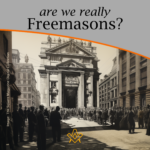 Maybe Freemasonry has opened its doors too wide. Perhaps some have not understood that the survival of Freemasonry in order to achieve its sublime purpose lies not in the number of members it has, but in their quality. Maybe we need less members and more Freemasons. Less men in Freemasonry and more Freemasonry in men. |
 What is ritual and why is it important? P1 Delve into the profound world of Freemasonry rituals and their significance. This insightful piece unravels the underlying importance of rituals, their impact on participants, and the transformative power they hold. Uncover why these centuries-old traditions remain integral to Masonic practice today. |
 Could Freemasonry be helpful for young men? Unravel the Masonic Brotherhood: Could Freemasonry be the antidote to modernity's challenges for young men? Dive in as we explore the Masonic world, its principles, camaraderie, and how its traditional rituals could help forge stronger identities in an increasingly complex world. |
 Discover the remarkable benefits of Lodge Meetings on your well-being. From fostering connections to combating stress, learn how these male-oriented gatherings offer an antidote to anger, hunger, isolation, and exhaustion. Dive into the power of shared experiences, understanding, and camaraderie. Your key to improved mental health awaits inside. |
 Tutorial for a Worshipful Master Unlock the Secrets to Leadership Mastery in our Worshipful Master's Tutorial! Brother Antonio Biella shares step-by-step guidance for Masonic Lodge leaders on honing their roles, duties, and future vision. Discover how to drive growth and engagement in your Lodge, setting ambitious goals and inspiring member participation. |
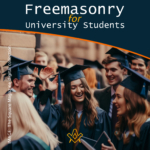 Freemasonry for University Students What are social skillset challenges facing students when they graduate from university ? |
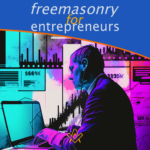 How the Core Values of Freemasonry; Brotherly Love, Relief and Truth Can Be Applied to Improve Productivity For Entrepreneurs |
 Why I became a Freemason: a personal journey of self-improvement Salik Tariq shares his reasons for becoming a Freemason – a journey of self-improvement, finding a community, and personal growth. |
 Freemasonry: Coming out of the Cloisters This paper examines the fundamental tensions on the lines of religion, gender and political ideology that exist in some jurisdictions of Freemasonry. It is on the first of these, religion, on which he makes an initial and exploratory focus. - by Gerald Reilly |
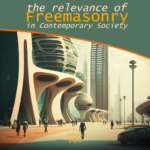 The Relevance of Freemasonry in Contemporary Society The role of Freemasonry in contemporary society is an indispensable one. Despite the challenges and misconceptions it faces, the organization remains steadfast in its humanitarian pursuits and commitment to personal growth and self-betterment. Through its efforts to evolve and adapt to the changing needs of its members and the world, Freemasonry continues to be a vital force in shaping a better future for all. |
 Has Freemasonry managed to revive and thrive after the darkness of the Pandemic? Robert Lomas gives us some (promising) insights. |
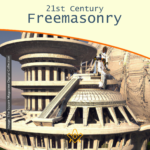 21st Century Freemasonry – a Sign of the Times? A recent article in The Times of London highlighted the dilemma 21st Freemasonry is facing. In this article one Master Mason shares his views of the strengths, and the challenges of modern Masonry. |
 A concept that is both based on our Freemasonic rituals and what we understand as teamwork. This article by Chris Batty examines why teamwork in the lodge is the network that binds us. |
 Lebanese Freemasonry has been both witness to and sometimes participants in turbulent events and forces, which shaped and influenced their world. |
 Is a Masonic Tradition Necessary? Dealing with Masonic tradition is a complex subject that requires careful analysis in order to reach a balanced point on the best etymological definition and the set of discourses and practices, which often end up being presented as such, without, however, presenting bases that support them, often serving only as a discourse that restricts and controls the masses. Fernando Rodrigues de Souza debates this complex subject. |
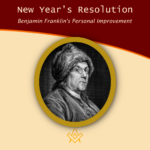 New Year's Resolution with Benjamin Franklin's Personal Improvement Are you ready for a new year's resolution challenge ? To accomplish his life’s goals, at 25 ( around 290 years ago ), Benjamin Franklin developed and committed himself to a personal improvement program that consisted of 13 virtues. You are invited to join me in practicing his daily routine for 2023. |
 The Alberta Masonic Higher Education Bursary Fund is to help the next generation of Albertans, our children and grandchildren, to obtain the education they need to lead successful lives and contribute to the welfare of mankind. As you can see from this little lesson of our history, education is truly a Masonic obligation. |
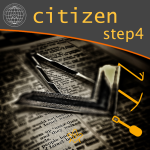 To be a Better Citizen of the World: Step 4 A value proposition for Pure Ancient Masonry as defined in terms of Citizenship; the allegories, symbolism and lessons are a blueprint for all Freemasons to be a better citizen of the world. |
 To be a Better Citizen of the World; Step 3 A value proposition for Pure Ancient Masonry as defined in terms of Citizenship; the allegories, symbolism and lessons are a blueprint for all Freemasons to be a better citizen of the world. |
 In connection with recent article about Freemasonry in the metaverse, we look at how an Egregore applies to Freemasonry in a digital world |
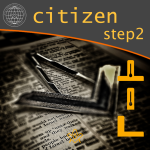 To be a Better Citizen of the World; Step 2 A value proposition for Pure Ancient Masonry as defined in terms of Citizenship; the allegories, symbolism and lessons are a blueprint for all Freemasons to be a better citizen of the world. |
 There are many brotherhoods in the world, and Freemasonry is one of the most significant and successful of them all. This article will be the focus two questions: the importance of brotherhood ? and is there room for improvement in Freemasonry? |
 Intergenerational relations in Masonry: challenges and possibilities Backed with scientific research, Professor Luiz Neto and Professor Alexandre Braune investigate the Intergenerational relations in Freemasonry and explores the challenges and opportunities. |
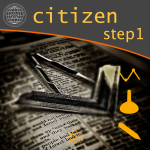 To be a Better Citizen of the World; Step 1 A value proposition for Pure Ancient Masonry as defined in terms of Citizenship; the allegories, symbolism and lessons are a blueprint for all Freemasons to be a better citizen of the world. |
 The Masonic Temple is a platform where both Freemasons and non-Masons, enthusiasts of real art and spiritual growth, connect to the new world of the metaverse. A Freemasonry in the metaverse project, based regular freemasonry principles. |
 Opportunity to fix the Sussex fudge Is there a value proposition for members, that under English Constitution Freemasonry, we have a 4 part offering; Entered Apprentice, Fellowcraft , Master Mason and Companion, conducted in a single craft lodge ? |
 Value Proposition of Freemasonry In addressing declining lodge membership and lack of attendance, we need to assess the value it offers to members. What is value, and what does it mean to you? |
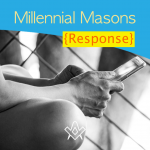 What is a 'Millennial' and what do they want from Freemasonry? You'll be surprised at the answers. |
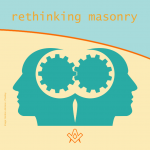 Let us help answer a fundamental question, from a confused newly raised brother asking “What does it all mean and where do I go from here?” |
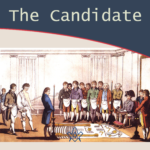 Written in 1930, much of the advice is still relevant today - although some may provoke further thought or debate! |
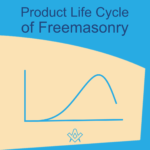 Product Life Cycle of Freemasonry An inconvenient truth about the product life cycle of Freemasonry |
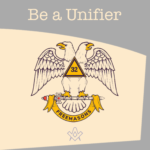 Freemasonry is local. This is where we need to start. We start with our Facebook friends, our neighbours, our colleagues, our lodges… |
 Freemasonry in the time of pandemic The Rule of Six. Localised lockdowns. Second wave? What do we do now?! The answer is simple - engage with members, promote Masonic education and get thinking outside the lodge. |
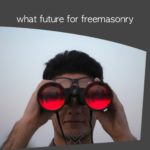 The current functioning of the Masonic movement has some positive aspects and others that are blatantly backward and counterproductive. |
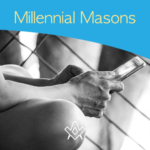 What is a 'Millennial' and what do they want from Freemasonry? You'll be surprised at the answers. |
 How to improve your Lodge Membership Marketing Program. |
 The Anti-Social Impact of Social Media The 'dark side' of social media and its negative effect on our mental health |
 If Freemasonry cannot meet, is this an opportunity to make a change to how we do things? |
 Has your lodge accepted an unknown candidate from the internet? Third in a three-part series looking at the process to accepting candidates via the internet |
 Is the brother of a brother a brother ? Rights to visit - recognition and regularity re-evaluated. |
 The second article in the Unknown Candidate series - Outlining the social media marketing process to attract the unknown candidate to make that first enquiry |
 Ask a random Freemason the purpose of Freemasonry and the likely response will be to “make good men, better”. Research undertaken by James Justin Davis Pennsylvania Academy of Masonic Knowledge. |
 Has your lodge accepted an unknown candidate from the internet? First in a three-part series looking at the process to accepting candidates via the internet |
 Mental Health - Raising its awareness and how we as Freemasons throughout the entire UK can help our fellow brethren and their families when they need it. |
 Share one thought why freemasonry is relevant today - Open question posted on Facebook with a very wide range of responses from Brethren across the globe |
 The Tipping Point of Freemasonry Why do brothers lose interest in Freemasonry and what can we do to get that spark back? At what moment did our own thoughts begin to waver? |
masonic knowledge
to be a better citizen of the world
share the square with two brothers

click image to open email app on mobile device









